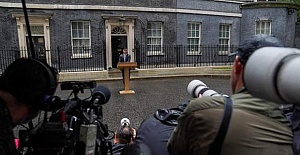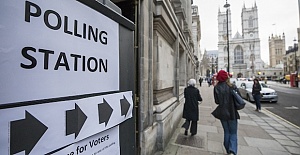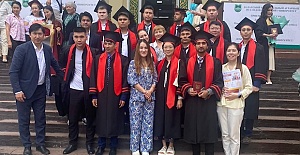In this article, the argument that I will try to examine is the defence of the independence and the autonomy of the Judiciary as well as - more generally – the defence of the principles of the rule of law. I will try to say something on this topic talking about the experiences of the association that I have the honour to chair for 4 years, MEDEL, an acronym for Magistrats européens pour la démocratie et les libertés[1]. But, to this end, I want to make some previous clarification remarks.
When I speak of independence and autonomy, I mean both the Judges and the Public Prosecutors (from now on I’ll call them: magistrates); I am talking about their internal and external independence. And I want to specify that an identical exigency of independence is requested not only for these “public protagonists” of the judicial procedures (civil, administrative, criminal), but for the lawyers as well. Only by actually ensuring this triple independence our state can fulfil the duties they assumed when subscribed the ECHR.
But I want to add a further remark as regards the magistrates. We are given independency and autonomy in view of the actual respect of the principles of the rule of law; in view of the concrete respect of the principle of the fair trial; in view of the concrete respect of the principle of legality; in view of the concrete respect of human rights. The concrete respect of the above-mentioned principles implies – inter alia – that: in a modern political democracy, no one can claim to be above the Constitution and the laws, the laws democratically adopted in a country; neither a public nor a private power, not even the magistrates. The guarantee for the independence of the magistrates against external attacks in ensured by the High Councils for the Judiciary.
I want to add a further remark: The independence regards the Judiciary in itself, as well as the independence of each one of the members of the Judiciary. Indeed, each one of the members of the Judiciary have the duty to examine the case brought before the Tribunal in an impartial and independent way, and each one of the judges is entitled to be protected by a statute which guarantee the impartial and independent taking of the decision. The powers of administration of the judicial structures are given to the High Councils only in view of that. These powers are related to all the carrier of the magistrates, starting from the first entering; and they imply: the promotions; the disciplinary competence; the good administration and the efficiency and the transfers.
Beside these public entities and their competences, the defence of the independence and of the correct exercise of the jurisdiction is given also to the Associations of J. and PP. This is a tradition that is strengthening and (geographically) widening in the course of the years. And to this end I will try to quote just a few examples of certain situations of crisis and of the consequent interventions carried out by MEDEL, in order to defend the Independence. In particular, as regards some “claims for the immunity” coming from a “power”, any kind of power.
Defending the independence of the judiciary in France, Serbia and Italy
During the last months of his presidency, Mr Sarkozy had pronounced some unacceptable words against the Judiciary (because of some decision he was disagreeing); the expressions used by Mr Sarkozy were so grave that all the French associations of magistrates had immediately proclaimed a strike; the participation to the strike was quite total, the colleagues being well aware that it was put under risk the existence itself of a judicial power as an independent body. And in this situation, MEDEL had promptly expressed its support.
Very recently a very difficult situation of our colleagues in Serbia met a very positive solution. The majority and minority political parties had reached a sort of common agreement aimed to “put the hands on the justice”. Using the pretext of a partial modification of the Constitution, the Government decided that all the judges and the PP had to be considered as “fired”; this decision was accompanied by some “friendly wink”; it is only a formal thing, you will be confirmed in block. In fact, more than the 30% were not confirmed; and the more worrying aspect was that the non-confirming decisions were taken by the High Council, taken by formal deeds that did not have effective motivation. Among the fired there were the members of the Bureaus of the Judges association, there including the President. Obviously, in front of this abuse, we immediately wrote to all the Council of Europe’s (Venice Commission, Consultative Councils of judges and prosecutors) and the European Union’s authorities, denouncing this ”legal golpe”. A delegation of MEDEL visited Belgrade several times; we were received in the European Parliament; asked Members of the EP to submit interrogations to the European Commission. And a few days ago there has been a sort of “backtrack”. Constitutional Court declared “well grounded” the claim submitted by Ms Bolievic against her dismissal: she has been re-admitted into the career.
Our contacts at an international level are not limited to the European authorities. MEDEL had been in contact also with Ms. Gabriela Khaul de Albuquerque, the Brazilian jurist that is the Special Rapporteur of the United Nations for the independency of the judges and the lawyers.
And here I make a short but strong reference to the independence of the lawyers. The role of the “technical defence” is essential for the effectiveness of the protection of all the rights and the freedoms listed in the ECHR: article 5 and personal freedom, article 6 and fair trial, article 13 and right to the access to a judge.
I want to focus on my country, in order to recall two issues, very negative and correlated risks. First of all, I want to underline the “risks of the political atmosphere”, the risk that judges and PP can unconsciously be conditioned by “atmosphere influences”. A few days ago a first instance court in Milan sentenced Mr Berlusconi to 4 years of imprisonment; it was not the first trial he was involved in (and this a demonstration of independency of the judiciary); the previous trials arrived to a sentence against other persons, but never against Mr Berlusconi, who was acquitted, at least with the formula that the proofs gathered were not sufficient (bard clause).
In Italy we have – I think – the highest type of independency of the Judiciary in Europe; our Judiciary had to face several grave cases of widespread criminality: terrorisms, corruption, mafia. And were able to exercise its powers in a correct way, quite ever arriving to the reconstruction of the events and of the consequent responsibilities. Though, sometime, I am afraid that the above-mentioned decisions of acquittal of Mr Berlusconi could be in some extent related to the “atmosphere”. The doubt is that, maybe unconsciously and -of course – unwillingly, the “atmosphere” could influence some colleagues.
And in this regard I must quote another phenomenon that happened in Mr Berlusconi’s term: the adoption of the “leges ad personam”. This included the adoption of new laws very urgently during the course of a criminal trial into which Mr Berlusconi was involved. The entering into force of these laws produced a patent effect: the acquittal of Mr Berlusconi. But there was a second and far more dangerous effect, an invisible effect: that is the message sent to the members of the Judiciary. Message was: mind you; it is not worthwhile; it could be dangerous to insist. That was something related to the atmosphere.
Constitutional Court as an institution guaranteeing the independence of the Judiciary
Why am I giving these examples related to my Country? This is because I think that each one of us is able to direct his own attention to his own country, trying to analyse both events and judicial decisions intervened after and in relationship with these events. It is to us, to each one of us and to the organ we elect in our countries for the protection of the independence of the Judiciary, the duty to pay the closest possible attention to any attempt aimed to restrict or indirectly affect the independence of each one of the judges and prosecutors. At the same time, it is to the High Council and to our Associations as well the duty to prevent any form of undue corporatism, any lack of efficiency and so on. These duties are also of the magistrates. The independency and the autonomy are given us and to our Councils as a tool for an efficient and fair administration of the justice.
But, as regards the High Councils I deem that some further words have to be said. The High Councils are organs of administration: notwithstanding their composition (in part they include elected members that seat beside “by law” members. It deals with a very sensitive administration task because it is related to the career of judges and prosecutors, therefore these powers can influence the “Jurisdiction” in itself, can influence the taking of the judicial decisions. A progression in the career, a transfer, a disciplinary sanction, and all these decisions by the High Councils must be taken in a very careful way. And must be submitted to an external control as regards their legitimacy.
The check and balance principle represents one of the basis of the rule of law; thus no organ of the state can remain out of these mechanisms of control on the legitimacy of its deeds. The right to a legal remedy to be submitted to an external organ is essential. A simple revision by the same High Council is not sufficient. An external control is essential.
I would like to conclude by returning to the events in Serbia. Down there the grave interferences, the illegitimate dismissals stemmed by different organs: the political power and – in some extent – the High Council as well. But in Serbia the Constitutional Court stopped illegitimacies we had denounced by accepting the claims of the dismissed colleagues. This Court was just carrying out a counter-balance institutional task. The Constitutional Court annihilated wrong deeds of the High Council.
Monetti, Vito (February, 2013), “Monetti: “Autonomy of the Judiciary is the foundation of democracy””, Vol. I, Issue 12, pp.6-9, Centre for Policy Analysis and Research on Turkey (ResearchTurkey), London, ResearchTurkey.(http://researchturkey.org/?p=2703)
[1] Having been created in 1985, MEDEL in 2012 is composed of 22 national associations of judges and prosecutors; we are present in 14 states, there including States where we have individual members. Austria, Belgium, Cyprus, Czech Republic, France, Germany, Greece, Italy, Poland, Portugal, Romania, Serbia, Spain and Turkey.



 Advice for Enfield residents ahead of the General Election
Advice for Enfield residents ahead of the General Election Sunak promises tax cuts, economic stability, Conservative Party election manifesto
Sunak promises tax cuts, economic stability, Conservative Party election manifesto Ertan Karpazli, an independent MP candidate for the Enfield North constituency
Ertan Karpazli, an independent MP candidate for the Enfield North constituency Rishi Sunak announces a general election in a statement outside Downing Street
Rishi Sunak announces a general election in a statement outside Downing Street Residents of Spanish island of Mallorca launch initiative to thank tourists amid protests over mass tourism
Residents of Spanish island of Mallorca launch initiative to thank tourists amid protests over mass tourism Srebrenica Remembered, Lessons for Justice and Peace! YEE London held a reflective event
Srebrenica Remembered, Lessons for Justice and Peace! YEE London held a reflective event British Premier Keir Starmer to reset UK-EU relations with high-profile meetings
British Premier Keir Starmer to reset UK-EU relations with high-profile meetings Voters head to polls for UK general election
Voters head to polls for UK general election The Swiss official will take charge of the match between Real Madrid and Atalanta in Warsaw
The Swiss official will take charge of the match between Real Madrid and Atalanta in Warsaw Applications are now open for Walking and Cycling Grants London until 9 September 2024
Applications are now open for Walking and Cycling Grants London until 9 September 2024  Two Circles also appointed as exclusive media sales agency for UEFA Women’s Champions League
Two Circles also appointed as exclusive media sales agency for UEFA Women’s Champions League  England manager Gareth Southgate has resigned two days after defeat by Spain
England manager Gareth Southgate has resigned two days after defeat by Spain Joyce and Snell's planning application gets stamp of approval
Joyce and Snell's planning application gets stamp of approval The amount of bounce back loans fully repaid is just %13
The amount of bounce back loans fully repaid is just %13 Petrol prices higher than they should be, says RAC
Petrol prices higher than they should be, says RAC UEFA and Mastercard renew UEFA Champions League partnership
UEFA and Mastercard renew UEFA Champions League partnership

















